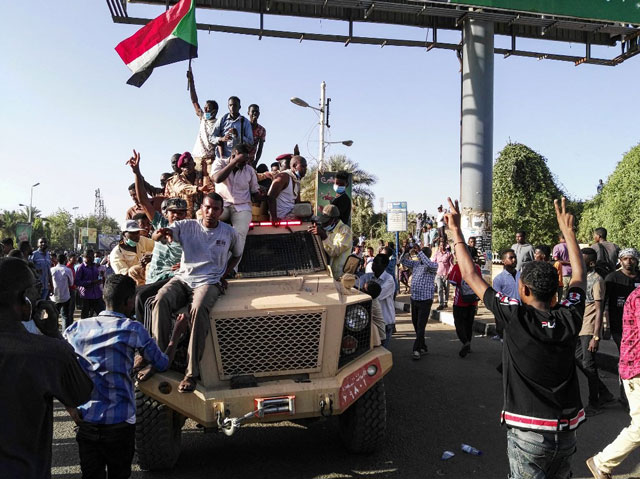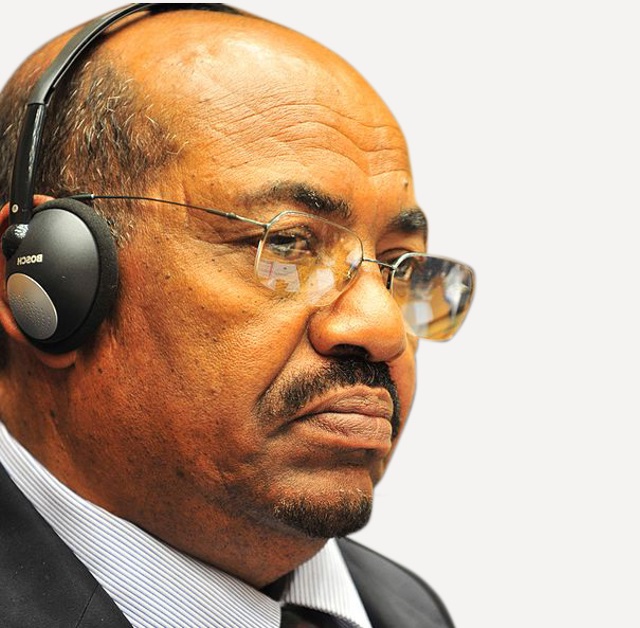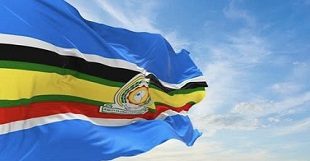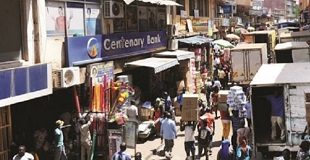
Why those who want change in Uganda need to think much more creatively about what it means
THE LAST WORD | Andrew Mwenda | Nearly two years since Gen. Omar El Bashir was removed from power through a popular uprising, Sudan is tottering on the edge of collapse. The government increased public sector wages by 400%, thereby throwing the country into hyperinflation. Then its currency plummeted against the dollar making the domestic cost of imported goods unaffordable by most of its citizens. For a country with limited manufacturing and therefore import-dependent, the rapid depreciation of the local currency cut deep. As if the spirits of the ancestors are angry at what is happening, Sudan has the worst flooding in a century, affecting nearly 70% of the population.
For many Sudanese, the era of Bashir is beginning to look like a golden age. Now behind bars, the former president must be smiling at his successors whose promises have turned into pipe dreams. The new government made up of “democrats” in alliance with the military that helped them overthrow Bashir is latching from crisis to crisis as if driven by fate like in Ancient Greek tragedies. Many Sudanese thought the problem of their country was Bashir. He is now gone but the problems of Sudan have gotten worse. The lesson from this experience is simple but fundamental: transitions can be messy and lock a country into a vicious cycle of crisis.
For many African intellectuals and “intellectuals”, the problem must be the legacy of Bashir, especially the long spell he spent in power. Therefore even out of government, they would rather attribute the problems of the country to him, as if the current leadership lacks agency. In Uganda, where President Yoweri Museveni has ruled for 35 years, the advocates of change are sensitive and defensive. To them, pointing out the failures of Sudan’s new leaders is a disguised way to justify Museveni’s long and corrupt rule.
African elites love to invent spurious reasons for the continent’s failures. Because some countries have had long serving leaders, and failed spectacularly, a cross section of elites argue that longevity in power is “the” problem. Yet even if this claim were true, it only shows that such longevity is a byproduct of deeper structural problems, not a cause. In any case there are countries in Africa that have not had long serving leaders but they have not faired any better.

Ghana in the 23 years from independence in 1957 to 1981 when Jerry Rawlings came to power (for a second time) had nine presidents, an average of 2.55 years per president. In 1981 it was a basket case. It is Rawlings’ long rule that stabilised the country and ushered in its current corrupt and chaotic democracy. Since independence in 1960, Nigeria has had 15 presidents. That is an average of four years per president and remains one of the most mismanaged countries in Africa. Sierra Leone and Liberia have also never had long serving presidents but have had the worst transitions in Africa, accompanied by economic and state collapse.
Nearer home, by the time Museveni came to power in 1986, the average time a president had ruled Uganda was 2.6 years yet he inherited a collapsed state and economy. Short-lived rule by his predecessors had not immunised Uganda against this disaster; it was, on the contrary, the cause of state fragility. Museveni has stabilised the political dispensation by taming the army and using extensive corruption and patronage combined with a dose of repression to craft a minimum consensus among Ugandan elites.
Uganda is holding together largely through Museveni’s personal skills and accumulated loyalties. But the longer he has stayed in power, the more authority has come to be based on personal relationships. Museveni exercises this authority through his immediate family, then close kin, friends etc. These too replicate it downwards, using personal ties. The danger of such a system is that the entire structure of authority can break down quickly when the power of the people in charge is threatened and/or undermined leading to state collapse like happened in Libya, Iraq, Zaire, Somalia, etc.
This is the very reason those seeking change in Uganda need to be very careful. The solution is not just “Museveni agende.” That is too simplistic. Yet this simplification is understandable. British economist John Keynes argued that many issues are complex. Ordinary people handle complexity through narratives i.e. readily digestible theories-in-miniature. Narratives can spread easily and become public goods; and also, as the case of Uganda (and Africa generally) shows, they can also stray quite a long way from reality.
The claim that Uganda’s problem is an individual called Museveni is one such false narrative. It has occupied the best of our minds in spite of so many changes of presidents previously without any qualitative change in the quality of governance. This is why the discussion of a transition is one of the most critical issues facing Uganda. How do we secure a qualitative transition from Museveni? For many Ugandan elites, supported by their cheerleaders in liberal circles in the Western world, the quality of change doesn’t matter. What is needed is change, period.
Some people believe that the collapse of tyranny automatically leads to the triumph of democracy. This conviction is based more on faith than historical experience. All too often, the collapse of one tyranny has led to renewed tyranny (witness Ethiopia, Eritrea, Egypt, etc.) or to chaos (as Uganda in 1979, Somalia, Liberal, Sierra Leone, Iraq, Libya etc.). This is why transitions need to be thought about carefully, recognising that there is never a quick fix. This is also the reason the “Museveni-agende” agenda of Defiance and People Power is mindless and even dangerous. When I make this argument, some accuse me of using subtle ways to justify Museveni’s longevity. I am all too happy to suffer this reputational damage if only to keep this argument alive.
Sections of the opposition that constitute an outrage machine have constructed a fetish around “credibility” – particularly a sort of credibility purchased by taking radical “Museveni-agende” positions on national media. To the adherents of this view, anyone who does not tow this line has been compromised or “bought” by Museveni. This way, the radical extremists in both Defiance and People Power have successfully stifled the debate on the quality of change Uganda needs. This strategy is understandable because they know the quality of change they offer is worse.
*****
amwenda@independent.co.ug
 The Independent Uganda: You get the Truth we Pay the Price
The Independent Uganda: You get the Truth we Pay the Price



But Andrew, haven’t you just realized that you’ve loitered around the argument trying to justify long dictatorships in power in Africa and in particular in Uganda? Before Rwanda’s president Paul Kagame turned on his words, around 2012/3 he bashed his loyalists when they told him that they don’t any other person capable of taking over from him to consolidate his RPF’s achievements! And this is what he told them: that it’s the very reason he should not be around if in the last 20 years he has not been able to create an environment capable of producing potential leaders to take over from him! The long rulers in Africa are largely not because of the good things they’ve done for their people but rather because they’ve impoverished them and made them destitutes in their own countries who don’t see the difference between dying here in Africa because of acute poverty and drowning in Mediterranean Sea trying to cross to Europe to have access to better life there! The role of any progressive African leader should be to create socioeconomic conditions favorable for a smooth political transition from one leader to another rather than unscrupulously entrench themselves as the alpha and omega. More than a century ago Lord Acton said power tends to corrupt and absolute power corrupts absolutely! And that’s the dilemma most African automats including your cult M7 find themselves in. They’re in leadership for their own sake not the country’s interestes as you may recall on 26th January 2017 when M7 said he is leadership for own family and beliefs not for Ugandans!
Andrew noted rightly that, “Uganda is holding together largely through Museveni’s personal skills and accumulated loyalties. But the longer he has stayed in power, the more authority has come to be based on personal relationships. Museveni exercises this authority through his immediate family, then close kin, friends etc. These too replicate it downwards, using personal ties. The danger of such a system is that the entire structure of authority can break down quickly when the power of the people in charge is threatened and/or undermined leading to state collapse like happened in Libya, Iraq, Zaire, Somalia, etc.” That is exactly the reason he needs to go no matter what. I’m sure Museveni has strategically crafted his rule that way, to cause political crisis after him, if Ugandans reject his dream of a family monarchy. The longer he stays, the more politically intrenched his monarch scheme gets and that will cause even a very big crisis. No matter what, we shall have a crisis. But, it is better to deal with the danger now because the more it carries on, the worse it will get.
Democratic is not attained on a silver spoon. Most of the democratic countries we see today didn’t not arrive where they are by accident. There was a lot of fighting and killings. You cannot handle a dictator like m7 and his people with gloves. Actually when they are ruthlessly dealt with after their down fall, one of the consequences is that it can make those who come later to think of the consequences. If they don’t learn or fear to leave so that they avoid being burnt alive, either way their time comes. Didn’t Gaddafi & others…
1.@ Alex:are you aware that the current administrative system in Uganda is composed of all tribes?do you know how many wealthy Baganda,Acholis,Langi,Iteso are in Uganda?with the progress Uganda has made under the watch of M7 he will definatley retire as a happy person what bothers him now is; why Ugandans prefer any burger on the streets to vie for presidency?
2.With NUP;we all saw the caliber of Ugandans who were overwhelmed with Bobi Wine.Reality has caught up with them they thought that government was simply witch hunting them only to discover that in the books of law things have to be done in the right way dont be surprised if Bobwine is told to prepare for 2026 elections instead.
3.Why is it that the Arabs,Africans,people from Eastern Europe and Latin America are all struggling with Democracy and poverty and why do they always blame the first world and the current sitting presidents for their incompetence?
4.The truth is that parts of Africa and the Arab world will take time to develop coz of our cultural norms for example Arabs made decisions based on Islam teachings.
5.Who benefits from the confusion in the Arab and African countries?
6.Are the Arabs and Africans so daft to differentiate between good practices and derailing tactics?
7.The next world war will be caused by activits they always blow matters out of proportion ;they caused the downfall of Gadafi,Bashir and others i am glad that M7’s regime just deports such chaps.
8.There is no country in the world whose citizens are satisfied with the workings of their Presidents;even the first world is gappling with unemployment just like African countries do.
9.No one is going to develop Africa for you have you heard?
10.Africans and Arabs are too transparent with their level of ignorance. You report you leaders to Europe and USA they know that you need guns which they will willingly supply.
11.World politics is covered with alot of secrecy:there are proxy wars that have to be fought so nations with oil,minerals and key water bodies then to be affected Somalia is always on fire coz of its strategic water body;Sudan is always on fire coz of oil;Uganda is still being watched closely like a man wooing a beautiful lady its a matter of time and they will pounce on us.
My sister Winnie, I kindly beg you to carefully reread M9’s piece above before you can make another proper rejoinder to his ideas on the political discourse, in Africa, Uganda in particular ! Otherwise I find your response a little hitting yourself below the belt. M9’s subtly and thinly veiled propaganda is that there’s no better alternative to M7’s autocratic rule and therefore, in his view, Ugandans would rather stay with him till he naturally drops dead in state house, and that after his demise the situation will sort itself! And that’s why whenever there are any challenges in the opposition he quickly heaps blame on all opposition leaders as lacking in creativity, but when the same occurs in the ruling nrm M9 will tell you it’s perfectly fine because that’s how democracy evolved even in the developed societies , and he hastens to caution the so-called outside world to steer clear on internal matters and leave it to the indegenes! So my dear sister I implore you kindly to resist the temptation to resort to redherring when justifying M9’s theories on M7’s 35-years of maladministration!
I think watering down Uganda’s failures to a few facts and examples misses to highlight the fact that all said and done, the museveni regime has failed on its promises.it is one reason why survival of the regime is a do or die for its fans.The discontent you witness countrywide is a clear indication of the mood and scaremongers like Andrew are at odds with those real citizens facing the brunt of a failed system. You may agree with me that after the fall of museveni, the next dictator will spend a lot of time and money claiming to correct the apparent failures of today. If you could remember those NRA cadres telling villagers that Obote was worse than Amin. Its is clear that Ugandans are constantly tied on the back of a racing leopard to Utopia and the result is always predictable. Thank you.
the security which is always used as song for the regime success if you see how soliediers are living a miserable life you can’t believe with no hope of their children accessing higher institutions bcoz simply to be exact 44k as a monthly salary so this country needs prayers
some clarification fourty four thousand shillings only after Sacco deductions as a monthly pay of a lowest rank in the army
Andrew’s narrative is actually the reflection of his fear of what will befall him, if and when Mr. Museveni, either suddenly kicked the bucket or ejected by other forces.
Some of Andrew’s fears is the typical fear of bad regime sycophants, henchmen/women, hatchet-men/women and ideologues. The fear e.g., of being lynched in mid-morning by an angry mob who have come to the conclusion that after all he (AM) is a relative of Mr. M7 (a cousin to Muhoozi) and blood sucker, with undeserving prime properties in Kololo and Butabika.